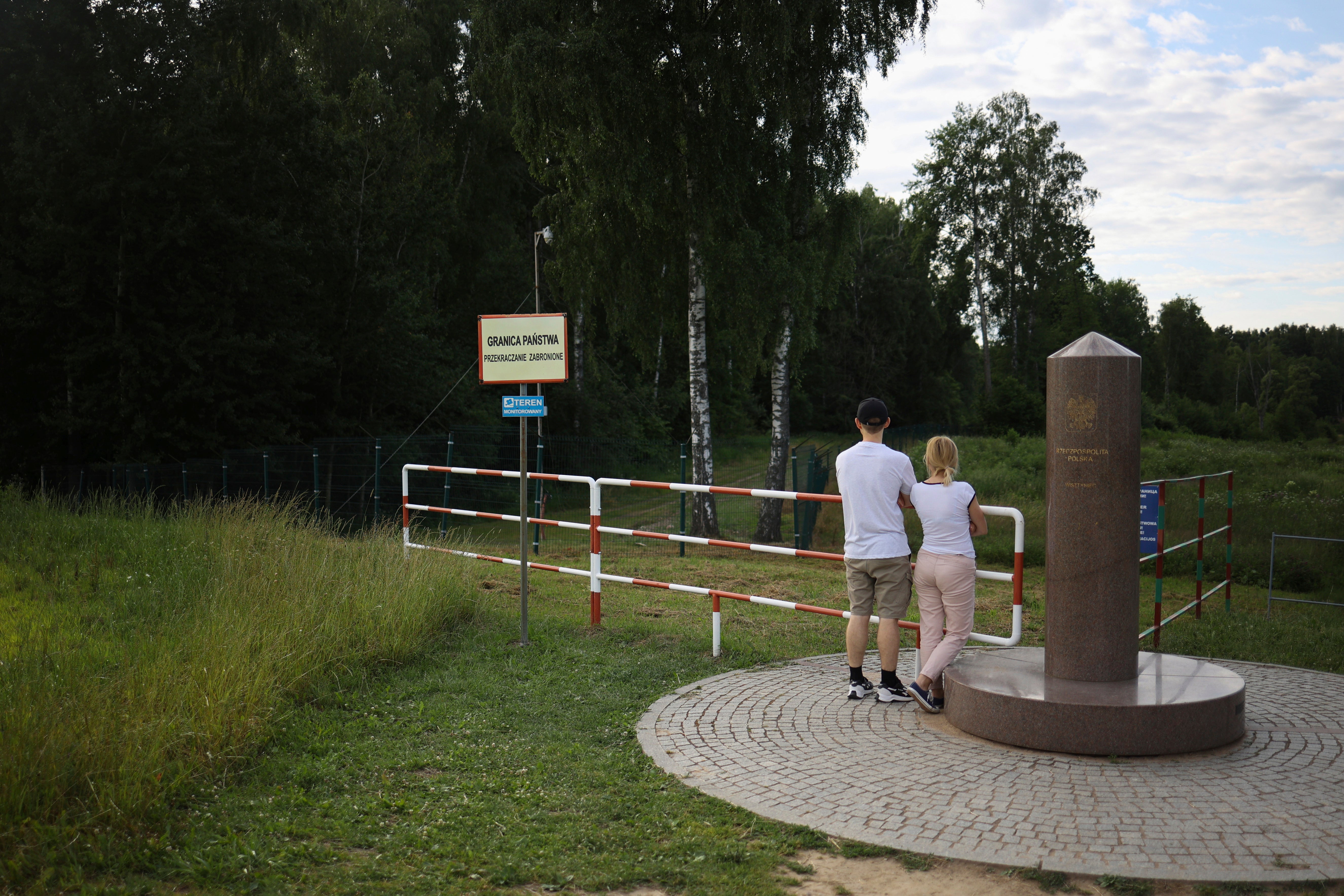Baltics say no automatic asylum for Russians fleeing draft
The three Baltic states say they are not prepared to automatically offer asylum to Russians fleeing mobilization into the military

Your support helps us to tell the story
From reproductive rights to climate change to Big Tech, The Independent is on the ground when the story is developing. Whether it's investigating the financials of Elon Musk's pro-Trump PAC or producing our latest documentary, 'The A Word', which shines a light on the American women fighting for reproductive rights, we know how important it is to parse out the facts from the messaging.
At such a critical moment in US history, we need reporters on the ground. Your donation allows us to keep sending journalists to speak to both sides of the story.
The Independent is trusted by Americans across the entire political spectrum. And unlike many other quality news outlets, we choose not to lock Americans out of our reporting and analysis with paywalls. We believe quality journalism should be available to everyone, paid for by those who can afford it.
Your support makes all the difference.The three Baltic states say they are not prepared to automatically offer asylum to Russians fleeing mobilization into the military, hoping that discontent with the Russian authorities will grow at home instead.
Large numbers of Russians rushed Wednesday to book one-way tickets out of the country after Russian President Vladimir Putin announced a partial mobilization of military reservists for the war in Ukraine.
There was little sign of any pressure at the borders of the Baltic countries of Estonia, Latvia and Lithuania after those countries closed their borders to most Russians earlier in the week.
In Latvia, Foreign Minister Edgars Rinkevics said Thursday that Latvia would not issue humanitarian or other visas to Russians seeking to avoid mobilization, citing security reasons.
“We must not give in to his (Putin's) blackmail and must support Ukraine as much as we can. Russia today is as dangerous to Europe and world peace as Nazi Germany was in the last century,” said Rinkevics, according to the Baltic News Service.
Meanwhile Lithuanian Defense Minister Arvydas Anusauskas said Thursday that “being drafted into the army is not enough” of a reason for Russians to get asylum in his country, which borders the Russian exclave of Kaliningrad.
“Political asylum is granted to those who are persecuted for their beliefs” or other similar reasons, Anusauskas told The Associated Press.
On Wednesday, Estonian Interior Minister Lauri Laanemets called Russia's invasion of Ukraine “the collective responsibility of Russian citizens” and argued that allowing in those fleeing possible army service would violate European Union sanctions aimed at Moscow.
“Putin’s latest move in some ways reinforces the sanctions we have imposed to date, because it will hopefully increase discontent among the population," Laanemets was quoted by BNS as saying.
"It is no longer just professional soldiers, people from remote regions or convicts who are being sent to the front, but the desire is for everyone to be relegated to cannon fodder,” he said.
Russians seeking to avoid being called up to fight are primarily flying to countries which still have direct plane connections, such as Serbia, Turkey, Georgia and Armenia — flights that quickly sold out after Putin's announcement of a partial mobilization.
Authorities in Finland, which has a land border with Russia, have not seen increased activity at their borders, despite some information on social media suggesting otherwise.
The Finnish border guards wrote on Twitter that "incorrect and misleading information circulates in social media.”
The Norwegian news agency NTB said that there is no increased activity at Storskog, the sole crossing point between Norway and Russia, located in the Arctic.
___ Vanessa Gera in Warsaw, Poland, and Jan M. Olsen in Copenhagen, Denmark, contributed to this report.